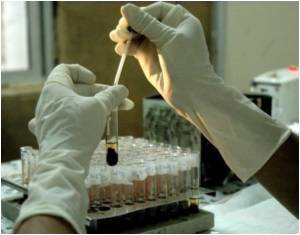Recent study sheds light on the operation of NK cells in the immune system.

Following the launch of a major genetics programme a few years ago, scientists succeeded in revealing a gene whose deactivation causes heightened functioning of the NK cells (see figure below). This gene, called Ncr1, contributes to the manufacture of the receptor NKp46, which is present on the surface of NK cells. Surprisingly, its role in activating the NK cells has been known for several years.
'NK cells go through various stages of development before combating microorganisms or tumour cells,' explains Sophie Ugolini, joint author of the paper. 'Without this receptor, the NK cells are more reactive and therefore more effective when they encounter the attackers of the organism."
To test the therapeutic potential of their discovery, the scientists blocked the NKp46 receptor using a drug (in this case, a monoclonal antibody). As in the genetics experiments, this treatment that blocks NKp46 makes the NK cells much more effective.
'Our aim now is to further explore the underlying biological mechanisms and to work in collaboration with the biopharmaceutical industry and the hospital to evaluate the medical potential of this new type of treatment, particularly for patients whose immune system has already been weakened, such as patients with an immunodeficiency and those who have had a bone marrow transplant or chemotherapy,' concludes Eric Vivier.
1 Innate immunity is a front-line defence system against tumours and microbes. It immediately acts against microbial agents that come into contact with an organism. Innate immunity is present in all living organisms, and plays an essential role in activating the adaptive response in vertebrates. This compartment of immunity hit the headlines recently when Jules Hoffman of France, Canadian Ralph Steinman, and Bruce Beutler from the USA (another co-author of this paper) received the Nobel Prize for their work on innate immunity and its close links with the adaptive immune system.
Advertisement









